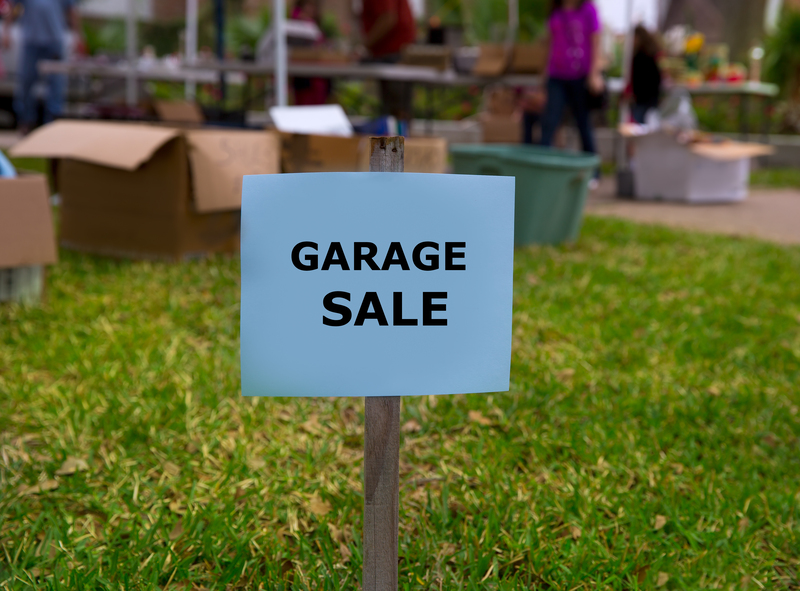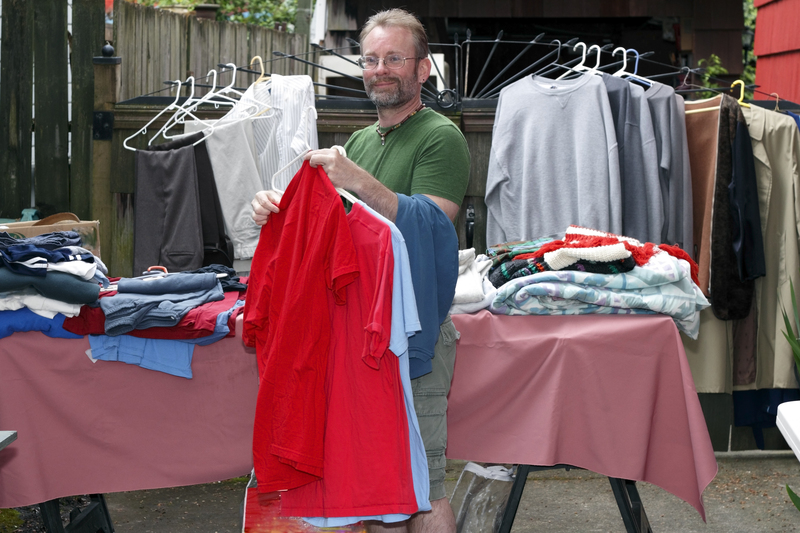Money Wise Methods to Manage Bulky Waste Items
Dealing with bulky waste items often causes headaches for households and businesses alike. From old furniture to broken appliances, managing voluminous waste doesn't have to be expensive or confusing. Adopting cost-effective bulky waste disposal solutions leads to less clutter, a smaller environmental footprint, and more cash in your pocket. In this comprehensive guide, we delve into the best money-wise methods for handling bulky waste items, ensuring a blend of convenience, eco-friendliness, and affordability.

Understanding Bulky Waste: What Qualifies?
Before exploring disposal strategies, it's important to define bulky waste. Bulky waste items are unwanted possessions that are too large to fit into regular curbside bins. Common examples include:
- Old sofas and mattresses
- Broken or outdated appliances (fridges, washing machines, ovens)
- Carpets, rugs, and large textiles
- Garden furniture
- Exercise and sports equipment
- Unused large toys (trampolines, playhouses)
Municipalities often have specific guidelines to identify these items, so it's wise to consult your local waste management authority's website when in doubt.
Why Proper Bulky Waste Management Matters
Managing large waste items responsibly is crucial for several reasons:
- Environmental impact: Bulky items left in landfills contribute to pollution, leach toxins, and occupy significant landfill space.
- Compliance: Many cities have strict rules and fines for improper disposal of large items.
- Community health and safety: Abandoned items on sidewalks can create fire hazards, block walkways, and provide a haven for pests.
- Resource recovery: Recycling and repurposing saves materials and reduces demand for new resources.
Affordable and Smart Ways to Manage Bulky Waste Items
1. Donate - Give Your Items a Second Life
Before rushing to the dump, consider donation. Many charities and nonprofit organizations gladly accept large items in decent condition. Donating is a cost-effective and socially responsible way to manage unwanted bulky items. Popular recipients include:
- Homeless shelters
- Furniture banks
- Thrift stores (like Goodwill or Salvation Army)
- Local community centers or schools
Some organizations even offer free pickup services, helping you save money otherwise spent on disposal fees or truck rentals.
2. Sell or Give Away Locally
One person's trash can be another's treasure. Use local online marketplaces like Facebook Marketplace, Craigslist, or neighborhood apps to:
- Sell large unwanted items for extra cash
- Offer for free in "curb alert" posts to clear out space quickly
Not only does this reduce landfill waste, but it also puts a little money back in your pocket--or at least saves you disposal costs. Always take safety precautions when arranging pickups or drop-offs.
3. Community Bulk Waste Collection Events
Many municipalities host bulky waste collection events or offer scheduled pickups for large items, either free or for a minimal fee. These events provide an excellent opportunity to dispose of items:
- Cheaply or even for free
- Responsibly, ensuring items are handled correctly
Check your local city or county waste management website for dates and guidelines. These events are a budget-friendly way to manage significant volumes of large household waste.
4. DIY Bulk Waste Drop-Off
If you have access to a vehicle, take your bulky waste items to local transfer stations or recycling centers. This approach can be economical and puts you in control of the disposal process. Here's how to make it work:
- Sort items ahead of time (e.g., metal, wood, electronics) to qualify for lower rates or free recycling
- Combine loads with neighbors to share transportation costs
- Check for resident discounts or voucher schemes at local facilities
Many cities allow residents a certain number of free or discounted drop-offs each year--take advantage of these money-saving programs!
5. Hire Affordable Private Collection Services
When local options are limited or if time is of the essence, private waste collection companies can help. To keep costs low:
- Collect and group items together to fill the minimum load limit
- Get multiple quotes and compare services
- Opt for off-peak days or combine pickups with neighbors for group discounts
Search for eco-friendly or budget providers online and always read reviews to avoid unexpected fees.
6. Upcycle and Repurpose
Getting creative with waste management can save significant sums and add character to your home. Popular upcycling projects include:
- Turning old doors into garden tables
- Repurposing shelves or pallets into planters
- Converting washing machine drums into unique fire pits or outdoor seats
There are countless online resources and DIY communities offering inspiration and tutorials. Upcycling is not just a money-wise solution; it fosters sustainability and creativity.
7. Partner with Local Scrap and Recycling Companies
Some dealers pay for certain materials found in bulky waste items, such as metal bed frames, washing machine parts, and appliance motors. Steps to maximize your return:
- Disassemble large items to segregate valuable parts
- Contact local scrap yards ahead of time to confirm what they accept and offer
- Bundle metals for bigger payouts
This method not only reduces disposal costs but can also generate some cash from your efforts.
Tips for Saving Money When Managing Large Waste Items
- Plan disposal in advance: Avoid last-minute expenses by timing your actions with free or low-cost city events.
- Share costs and transport: Organize a "block clean-up day" to collectively manage collection or hire a skip bin.
- Check eligibility for city discounts: Some municipalities offer vouchers, rebates, or income-based discounts for bulky item disposal.
- Learn the rules: Improper dumping can result in hefty fines. Always follow local government instructions on what can be left at curbside and when.
- Store temporarily if needed: If you miss a collection date, see if items can be stored securely in the garage until the next event.
Email and Online Booking: The Modern Way to Arrange Removal
Handling bulky goods responsibly has never been easier with digital solutions. Most municipal services and reputable private haulers now offer:
- Online scheduling platforms for pickups
- Email confirmations and reminders
- Contactless payment options
This digital approach saves time, eliminates paperwork, and ensures you have documentation of compliance.
Environmental Benefits of Smart Waste Management
Using these costwise strategies to manage bulky waste delivers tangible environmental upsides:
- Reduces landfill overflow
- Encourages recycling and reuse
- Promotes resource efficiency
- Minimizes pollution and greenhouse gases
Every sofa donated, appliance recycled, or item repurposed helps cut down the environmental footprint of your household or business.
What to Avoid When Disposing of Bulky Waste Items
- Fly-tipping: Illegally dumping large items can lead to severe fines and legal action.
- Ignoring hazardous components: Items such as refrigerators must be de-gassed. Always check specific disposal rules for electronics, mattresses, and appliances.
- Assuming everything is trash: Don't overlook the value of resale, donation, or upcycling.

Bulky Waste Items FAQ
What qualifies as bulky waste?
Bulky waste includes items too large for regular garbage bins--think sofas, large appliances, beds, and big toys. If it doesn't fit in your standard wheelie bin, it's probably bulky waste.
Is there a free way to get rid of bulky waste?
Yes! Donation, resale, and community collection events are often completely free. Research your local offers and don't hesitate to reach out to charities or your council.
What happens if I leave bulky items by the curb?
Unless it's a designated pickup day or has pre-approved scheduling, leaving items on the sidewalk can lead to fines or citations. Always check local disposal guidelines first.
Conclusion: Be Smart, Save Money, and Reduce Waste
Managing bulky waste items doesn't have to wreck your budget or the environment. By leveraging donation, resale, community schemes, DIY drop-off, and creative upcycling, you not only save money but also help build a more sustainable world. Start by evaluating what you have, exploring all cost-effective disposal options, and always comply with local regulations. Taking a money-wise approach to bulky waste is a win-win for your wallet and the planet!
Looking for more inspiration? Bookmark this guide and share with friends or neighbors ready to tackle their own unwanted items the smart way.
